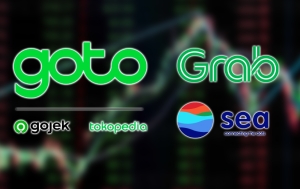The problem with being a super app is that most of them can’t be super at all the things they try to do. Inevitably, many superfluous services rolled out to increase stickiness are quietly discarded when achieving profitability becomes paramount. To be sure, Sea has dealt with this problem, but less in terms of winding down unnecessary services than exiting markets where it does not need to be such as Europe, India and some Latin American countries – at least not now – so it can focus on the important ones.
With the exception of Brazil, Sea’s most important markets are in Southeast Asia, and unsurprisingly, that’s where it is thriving. SeaBank Indonesia recorded a net profit of 269.2 billion rupiah (US$18 million) in FY 2022, compared with a loss of 313.4 billion rupiah (US$21 million) in FY2021. Not a huge profit by financial industry standards, but certainly a step in the right direction. Further, SeaBank’s loans disbursed climbed to 15.9 trillion rupiah (US$1.1 billion) in FY2022 from 6.1 trillion rupiah (US$409.2 million) the year before. NPLs rose modestly from 1.35% to 2.03%.
SeaBank is thriving thanks both its connection to Shopee’s ecosystem and the broader e-commerce and digital banking boom in Indonesia, a country with an estimated 181 million unbanked people.
Meanwhile, Sea quietly launched a “rural bank” in the Philippines last year, taking advantage of a regulatory shift that creates a loophole to bypass the cap on six digital banking licenses imposed in 2021. Per the regulatory change, the Philippine central bank can consider applications to set up thrift, rural and cooperative banks that have digital bank business models as digital bank license applications. Capitalization requirements are set 1 billion Philippine pesos (US$17.9 million) – not a problem for a company Sea’s size.
The Philippines has a significant unbanked market of about 34.3 million people, and many others who are underbanked. For Sea, the country represents a significant market opportunity.
Sea also has obtained digital banking licenses in Singapore and Malaysia, but neither country offers it the same potential for growth as Indonesia or the Philippines. Still, over time, Sea might be able to cultivate niche markets in both countries.
Neither of Sea’s super app competitors is as well positioned in the region in digital financial services. While the Grab-Singtel consortium has obtained digital banking licenses for both Malaysia and Singapore, it only has a minority stake in Indonesia's PT Bank Fama and no digital banking presence in the Philippines. GoTo, meanwhile, has a minority stake in Bank Jago through GoJek, but otherwise is not competing in other digital banking markets.
Additionally, both Grab and GoTo ultimately still have shaky business models. Since their inception, both of these companies have been incinerating cash to sell services below market prices in a mad dash to scale up. This strategy worked when interest rates were low and deep-pocketed investors were happy to let their cash burn in the hope that one of their “growth company” bets paid off big. But those days are long gone.
Now they have to prove that ride-hailing is a money-making business. Until they can do that, they will not be able to thrive in digital financial services.

